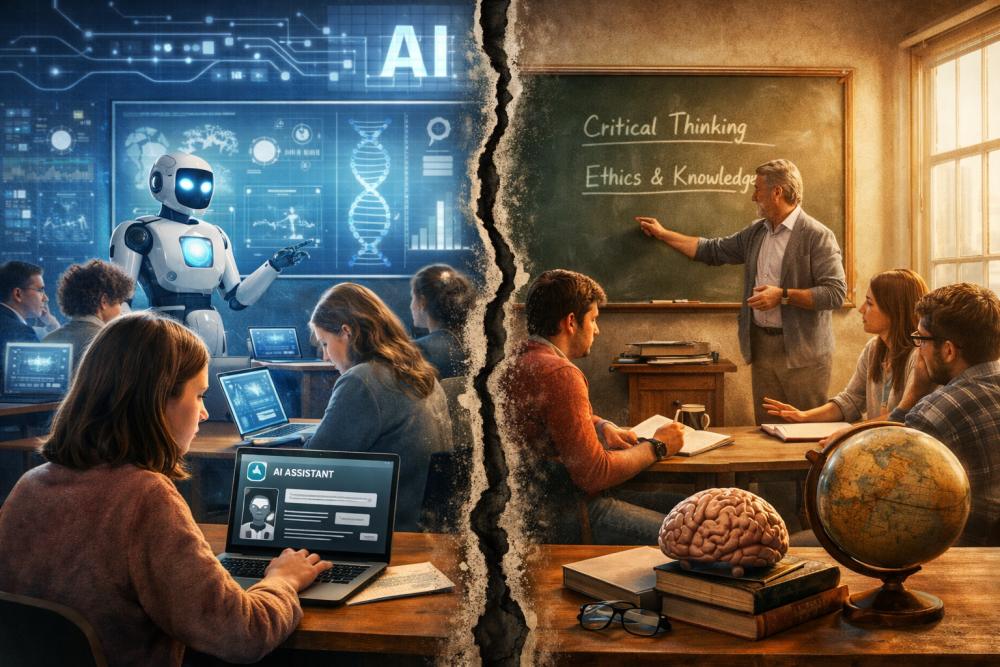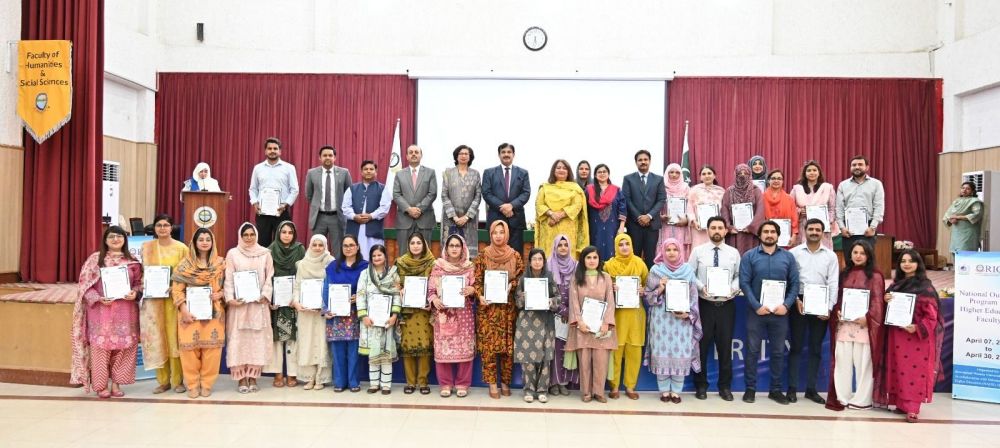39/25 How Does the Federal Secretary Envision AI Benefits in Education?
Posted 11 months ago
Our conventional educational system is not coping with the country's educational demands. With 25 million children still out of school, it is clear that mere infrastructural improvements will not suffice. The fundamental transformation must come from within through a systemic shift in how education is delivered, leveraging modern technology to empower teachers and students. This is the vision of Federal Secretary Mr Mohyuddin Ahmad Wani, whose relentless efforts are bringing fruit to Islamabad schools. He aspires to expand this throughout the country.
At a workshop attended by over 400 educators, the Federal Secretary of Education made a compelling case for integrating generative artificial intelligence (AI) into the country's classrooms. His message was clear: the conventional education model is no longer adequate. If it were, Pakistan would not be facing an educational crisis of this magnitude that demands immediate and decisive action.
The urgency of the situation cannot be overstated. AI is not just an emerging tool but a necessity for modern education. Teachers, once burdened with rote learning methods of instruction, can now harness AI for lesson planning, student assessment, and interactive learning experiences. More importantly, AI's potential is not limited to science and technology; it can be a powerful tool for social sciences educators, enhancing critical thinking and engagement in their classrooms and opening up new horizons for learning.
Mr. Wani's vision aligns with a broader movement toward inquisitiveness in education. The foundation of intellectual growth is asking the right questions and seeking meaningful answers. When adequately implemented, AI can become a powerful partner in this endeavor, guiding students and educators toward deeper inquiry and discovery.
The workshop, organized by the Federal Directorate of Education (FDE) in collaboration with the National Institute of Excellence in Teacher Education (NIETE), marked a pivotal step toward this transformation. Educators were introduced to AI-driven platforms to enhance foundational literacy and numeracy, reinforcing the belief that early education must be dynamic, adaptive, and technology-driven.
Students from urban and rural schools in Islamabad demonstrated their AI projects, proving that Pakistan's youth can more than master these technologies when given the opportunity. Their work in game design, AI-assisted video creation, and digital storytelling shattered preconceived notions about the limitations of public education.
The Federal Secretary stressed that technology alone would not solve the crisis. A major investment in digital infrastructure and teacher training is imperative. Pakistan must introduce AI into classrooms and ensure educators can utilize it effectively. This requires the introduction of AI tools and the development of a comprehensive support system, like NIETE's initiative to build a support network for primary-level teachers. However, this must be scaled and sustained across the country and should also penetrate the secondary and tertiary education systems. Additionally, supportive policies and funding are crucial to ensure the success of this comprehensive approach.
Mr. Mohyuddin Ahmad Wani firmly believes that we all must recognize that AI is not a luxury but a fundamental tool that will define the future of learning. The global shift toward AI-powered education is underway, and Pakistan cannot afford to lag. The Federal Secretary's call to action must be met with concrete policies, funding, and commitment from all stakeholders. The time for incremental/infrastructural change has passed. A comprehensive, AI-driven education reform is not just an option, it's the only way forward. For the sake of Pakistan's future, educators and policymakers must embrace this transformation before another generation of students is left behind. The gravity of the situation demands nothing less.




